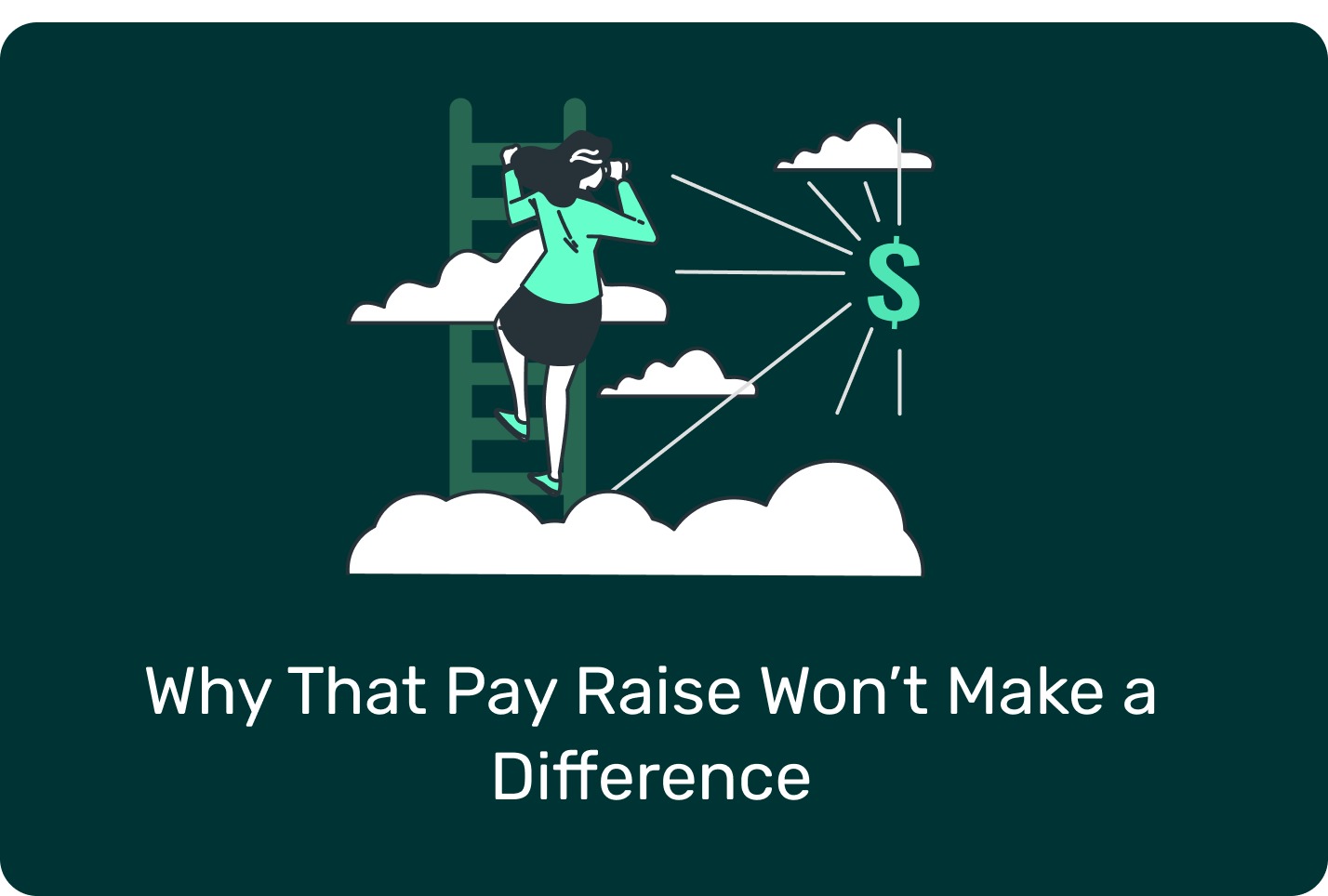Almost all of us, at one point, have said to ourselves: “If I can just make $X/year, I will no longer need to worry about money,” or, “If I get paid $X/hour, everything will change.” But for anyone reading this who has reached that once impossible threshold we set for ourselves many years ago, you know that life’s expenses have crept up almost in perfect unison to make that additional money blend right in. Here’s a hard-hitting truth that might just shatter your financial worldview: getting a pay raise or unlocking a new income stream is often not the golden ticket to the life of luxury and security we’re made to believe it is. This revelation isn’t just about debunking the age-old myth of financial freedom through increased income; it’s about exposing the psychological warfare waged by lifestyle inflation and the societal pressures that fuel it.
The Mirage of More Money
Let’s paint a picture far removed from the usual financial advice fluff. Imagine you’ve just landed a significant pay raise or started a lucrative side hustle. The initial euphoria is intoxicating; you feel like you’ve finally cracked the code to living the life you’ve always dreamed of. Fast forward a few months, and the excitement has faded into the background noise of your now more expensive lifestyle. That extra income? Vaporized. The dream? Still just out of reach. This isn’t a tale of reckless spending or financial irresponsibility; it’s the reality of lifestyle inflation—a creeping force that silently escalates your standard of living and expenses, often without you even realizing it.
The Social Media Effect
In today’s digital world, the pressure to keep up appearances is relentless. Social media platforms are flooded with images of perfection and luxury, from exotic vacations and designer wardrobes to gourmet dining and high-end gadgets. This constant bombardment isn’t just selling a lifestyle; it’s subtly dictating how we should aspire to use our money. The result? A paycheck-to-paycheck life, regardless of the paycheck size.
The Reality Behind Closed Doors
Behind the facade of the perfect life showcased on Instagram or TikTok lies a less talked about reality: debt, financial stress, and a never-ending chase. The irony is palpable. Many who appear to “have it all” are fighting silent battles with credit card bills, loan repayments, and the anxiety of maintaining a facade they can barely afford. It’s not just the influencers and the rich who drive this cycle, it’s the very nature of these platforms, rewarding people with likes and comments for posting only the best things in life – the ski trip to Aspen, the 5-star Spa experience, an all-inclusive Mexico retreat – only the “post worthy” moments in life are shared, creating an unrealistic view of the world we live in. It is a vicious cycle of earning more to spend more, all in the pursuit of an image that’s often far removed from genuine happiness or financial stability.
The Cultural Conundrum
Our societal fabric is woven with narratives that equate success with material wealth and consumerism. From a young age, we’re taught to aim for high-paying jobs, not just for security or passion, but as a measure of our worth and success. This cultural script doesn’t just shape our career choices; it molds our spending habits. The new car, the bigger house, the latest tech—it’s all part of a script we’ve been handed, not necessarily one we’ve chosen.
The Price of “Making It”
Consider the concept of “making it” in society. It’s often visualized as reaching a pinnacle of financial success where money is no longer a concern. Yet, for many, this pinnacle is a mirage. The goalposts of “making it” shift with every raise, bonus, or financial windfall. The more we earn, the more elaborate our definition of success becomes, entrapping us in a cycle of perpetual dissatisfaction and relentless pursuit of more.
Breaking the Mold
Stepping off this treadmill requires a radical shift in perspective. It’s about challenging the societal norms and personal beliefs that have kept us chained to a lifestyle of consumption and comparison. It involves redefining what success and happiness mean on our own terms, not through the lens of societal expectations or social media validation.
The Liberation of Letting Go
Imagine the freedom of disconnecting your self-worth from your net worth or the size of your home. Envision finding contentment not in the latest purchase but in experiences and relationships that truly matter. This isn’t a call to austerity or shunning material pleasures; it’s an invitation to mindful consumption and finding joy in simplicity—a joy that’s far more sustainable and fulfilling than any temporary thrill bought with a paycheck.
The Key to Happiness
The path to financial liberation is not paved with conventional wisdom on saving, investing, or budgeting, though these are valuable tools. It’s carved out by challenging the very foundations of what we define as “enough” or the value we place on material things. It’s a journey of introspection, of asking ourselves why we crave the things we do and whether they genuinely contribute to our happiness or if they’re just band-aids covering a deeper void. The reality is, for most of us, financial freedom and a life of happiness is much closer than we lead ourselves to believe. A subtle shift of perspective when combined with sustainable, heathy habits – get more exercise, practice daily meditation, prioritize sleep, spend less than you make – all things that we are capable right now, without having to make extreme lifestyle changes (at least for most of us)
The Real Wealth
True wealth isn’t measured by the balance in your bank account or the assets you own; it’s found in the richness of your life experiences, the depth of your relationships, and the peace of mind that comes from living authentically and within your means. It’s about creating a life where your financial decisions—whether it’s earning more or spending less—are aligned with your values, aspirations, and the legacy you wish to leave behind.
The Conclusion That’s Not Really an End
The narrative that more money equates to a better life is a compelling one, but it’s filled with pitfalls and illusions. Breaking free from the shackles of lifestyle inflation and societal pressures is not just an act of financial defiance; it’s a crucial step towards personal liberation and true happiness. It’s a journey worth embarking on, not for the promise of what more money can buy, but for the discovery of what it can’t.

